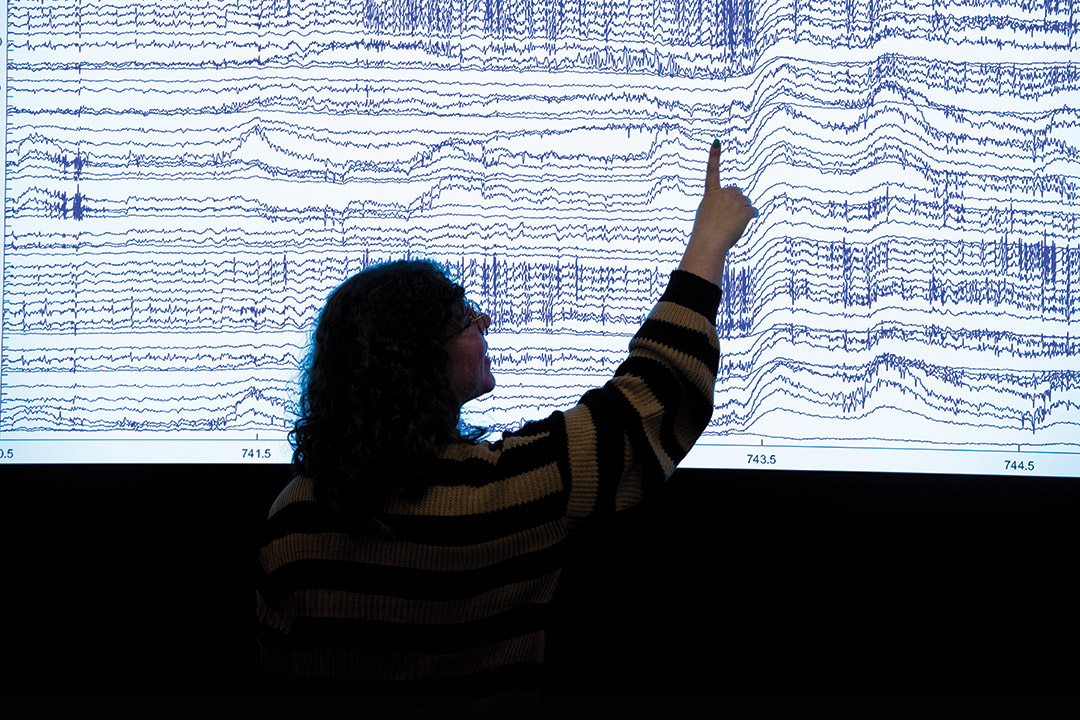Ph.D. programs point the way forward
Carlos Ortiz/RIT
Elena Mpadanes, from Munich, Germany, talks about identifying sources of noise that interfere with EEG signals when measuring brainwaves. She is a student in RIT’s new cognitive science Ph.D. program that started last fall.
RIT’s Ph.D. portfolio took a leap forward during President David Munson’s leadership. A combination of new Ph.D. degree programs and increased student enrollment has elevated the university’s capacity for high-level research and scholarship.
RIT has 13 Ph.D. programs currently enrolling 492 students. Munson’s time at RIT has seen the addition of seven Ph.D. programs, including cognitive science and physics this past fall.
RIT’s Ph.D. community has grown by 78 percent since 2017, when Ph.D. enrollment reached 277 students. In 2020, the university surpassed its strategic goal to confer 50 Ph.D. degrees during an academic year. Overall, RIT has more than doubled the number of Ph.D. degrees awarded from 31 in 2017 to 65 in 2024.
The increase in Ph.D. programs, enrollment, and graduates meets major initiatives outlined in the 2025 Strategic Plan and moves the university closer to becoming a top research institution. While the Carnegie Classification of Institutions of Higher Learning ranks RIT as an R2, or a high-research activity institution, RIT aspires to a research- intensive designation and increasing sponsored research commensurate with R1 research universities.
“We have met the goals of the strategic plan, and now we look forward to contributing to the research innovation in the future,” said Diane Slusarski, dean of RIT’s Graduate School. “Attracting high-quality graduate students is essential for RIT’s goals and national recognition.”
The cognitive science program illustrates RIT’s multidisciplinary approach to big topics like the human mind. Faculty from six colleges share their expertise from psychology, computer science, linguistics, neuroscience, augmented reality, and philosophy.
Among the first cohort, Tadhg Hicken ’24 (ASL-English interpretation) and Elena Mpadanes are studying different aspects of processing American Sign Language. Hicken wants to bring a cognitive-science lens to interpreting education while Mpadanes is looking to advance the understanding of language processing in Deaf and hearing signers.
“The interdisciplinary nature of the cognitive science program perfectly matches my academic interests and fosters a multilayered perspective on research,” Mpadanes said.
Along with cognitive science and physics, RIT’s other Ph.D. programs include astro- physical sciences and technology, biomedical and chemical engineering, business administration, color science, computing and information sciences, electrical and computer engineering, imaging science, mechanical and industrial engineering, microsystems engineering, mathematical modeling, and sustainability.









